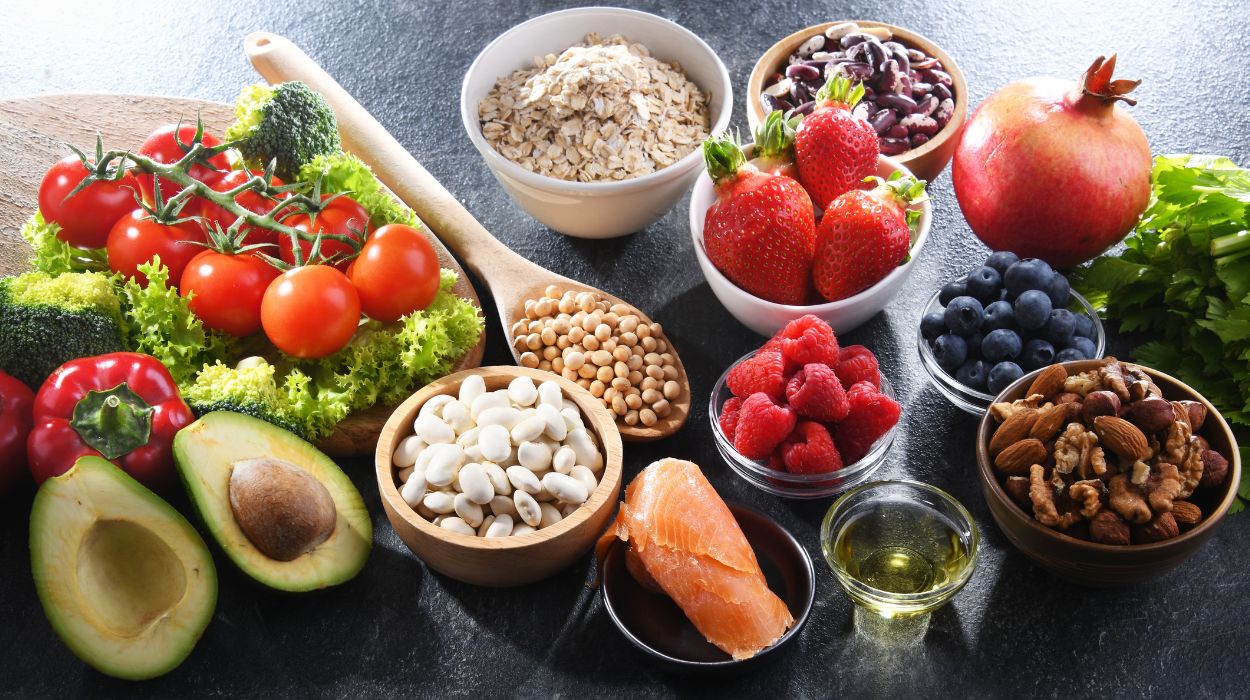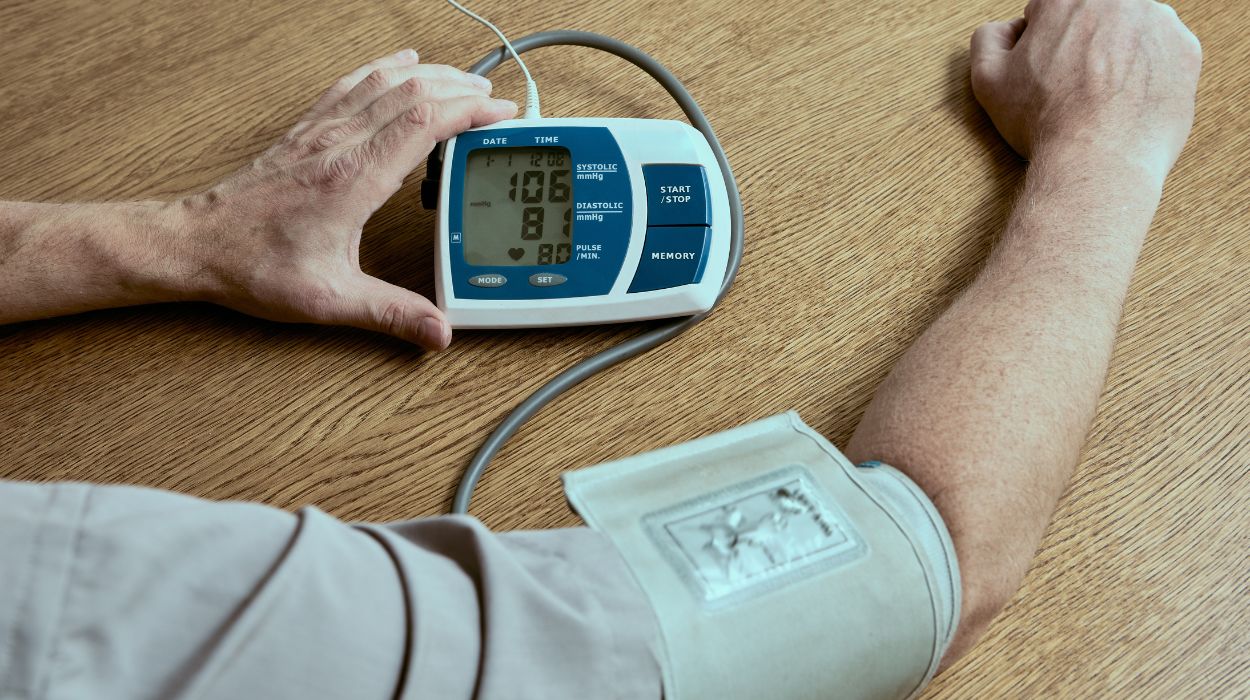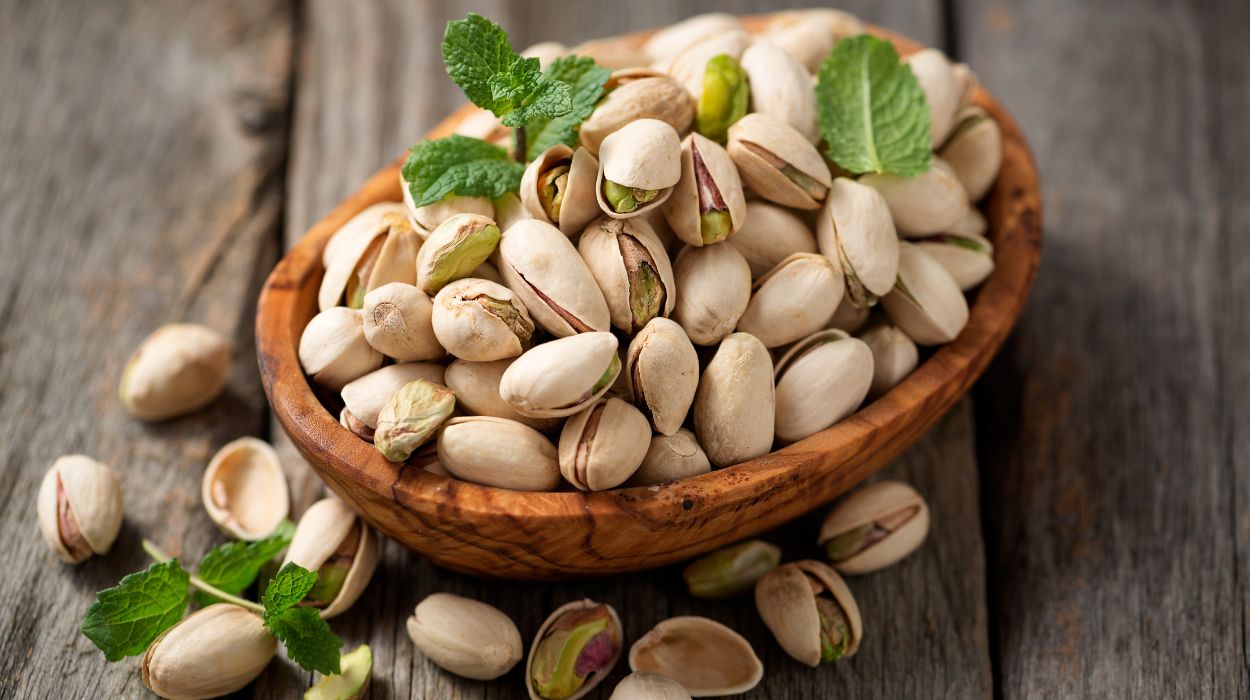 Expert's opinion
Expert's opinion
Expert's opinion
The article is a subjective view on this topic written by writers specializing in medical writing.
It may reflect on a personal journey surrounding struggles with an illness or medical condition, involve product comparisons, diet considerations, or other health-related opinions.
Although the view is entirely that of the writer, it is based on academic experiences and scientific research they have conducted; it is fact-checked by a team of degreed medical experts, and validated by sources attached to the article.
The numbers in parenthesis (1,2,3) will take you to clickable links to related scientific papers.
Keto Diet & Blood Pressure: How Can A Keto Diet Help?

High blood pressure, or hypertension, is a common health condition that can increase the risk of heart disease, heart attack, and stroke. In the United States, 47%, or 116 million adults,[1] have hypertension.
This article will discuss high blood pressure, the ketogenic, or keto diet and blood pressure, and how this diet can help decrease your blood pressure. We’ll also talk about health benefits and considerations to be aware of.
A ketogenic diet is a high-fat, moderate protein, and low-carb diet. To do this, you must typically lower your carbohydrate intake to less than 50 grams daily.[2] Eating such a low-carb diet causes your body to go into a metabolic state called ketosis- where your body is unable to break down carbohydrates for energy, and it instead will burn fat. When done in a healthy and careful way, this can lead to weight loss, lower blood pressure, and other health benefits.
Is Keto Good For High Blood Pressure?
So what happens with the keto diet and high blood pressure? Research studies[3] suggest that for people with hypertension, this diet may help regulate blood pressure and lower the risk of heart disease. There are several reasons for this. Let’s take a look at them.
Blood Pressure: An Overview

Blood pressure is the pressure put on the walls of your blood vessels as your heart beats and pumps blood throughout your body. Lowering blood pressure, if it is high, is a great way to improve your health. Blood pressure is made up of two values:
Systolic Blood Pressure (SBP): The pressure when the heart muscle is contracting or squeezing blood from the heart to the blood vessels. This is the first and highest number.
Diastolic Blood Pressure (DBP): The pressure when the heart muscle is relaxed. This is the second and lowest number.
Blood pressure is measured with a digital blood pressure monitor or a manual sphygmomanometer. It can be measured at your doctor’s office, and it can also be measured at home if you purchase your own digital blood pressure monitor. If doctor’s offices make you nervous, this may cause your blood pressure to be higher- in this case, your doctor may recommend you check yours at home.
Causes Of High Blood Pressure
High blood pressure has many causes[4] it is often an inherited trait and can run in families. Your risk of high blood pressure tends to increase with age, with men being affected slightly more than women. Other well-documented risk factors include being African American, overweight, obese, smoking cigarettes, and alcoholism.
Primary Hypertension- This is the most common type of high blood pressure and often has no identifiable cause. It can develop gradually over one’s lifespan, often hastened by atherosclerosis, or the build-up of plaque in the arteries- causing them to narrow and stiffen. Eating a diet high in cholesterol and saturated fat can make this plaque build-up happen faster.
Secondary Hypertension– This is caused by an underlying health condition and appears more suddenly than primary hypertension. Causes include blood vessel or heart problems present at birth, adrenal gland tumors, kidney disease, thyroid disease, and obstructive sleep apnea.
High blood pressure can be a side effect of some cough and cold medications, birth control pills, and other prescription drugs. It can also be caused by illegal drugs such as cocaine and methamphetamines.
What Are Hypertension And Hypotension?
Hypertension is also called high blood pressure. Over time, increased pressure on the walls of your blood vessels can lead to health problems such as heart disease, heart attack, heart failure, stroke, and other cardiovascular risk factors. This is how the American Heart Association defines blood pressure measurements
- Normal: SBP < 120 and DBP < 80
- Elevated: SBP 120-129 and DBP < 80
- Hypertension (Stage I): SBP >130 or DBP > 80
- Hypertension (Sage 2): SBP > 140 or DBP > 90
- Hypertensive Crisis: SBP > 180 or DBP > 120 – consult a physician immediately
Hypotension is also known as low blood pressure and is defined as a systolic average blood pressure of less than 90 or a diastolic average blood pressure of less than 60. It can be caused by dehydration, illness, or medications. Some people naturally have low blood pressure. Talk to your doctor if you feel faint, lightheaded, or dizzy.
The Comparison Between Keto Diet And Other Diets
Weight Loss: It is well documented that a low carbohydrate diet or keto diet can promote weight loss[2] rapid weight loss in some people- improving blood pressure, increasing overall health, and decreasing your risk for metabolic syndrome.
Dietary Choices: The keto diet promotes the intake of many foods that lower blood pressure. We will talk more about these foods later in this article.
To maintain a keto diet, 70-80% of daily calories need to be from fat, 10-20% from protein, and 5-10% from carbohydrates. The ketogenic diet is considered a low-carb diet, but not all low-carb diets are considered keto. Some diets are low-carb, but not so low-carb that they put your body into ketosis.
Example 1: Keto Vs. Zone Diet
The Zone Diet[5] is a low-carb diet. It is not quite as significant of a carbohydrate restriction as keto– so your body will not be in ketosis. The Zone Diet also suggests a maximum of between 1200-1500 calories per day for effective weight loss. The keto diet does not limit calories, only carbohydrates. As mentioned above, weight loss is an effective way to lower blood pressure naturally. Weight loss can occur with both diets, but some may find the Zone Diet too calorie-restrictive to meet their needs.
Example 2: Keto Vs LEARN Diet
The LEARN diet is a lifestyle behavior-change weight loss program. Rather than sticking to a strict dietary plan or limiting specific foods, the LEARN diet focuses on Lifestyle, Exercise, Attitudes, Relationships, and Nutrition.
The LEARN diet can be a great way to improve blood pressure and lose weight by incorporating lifestyle and mindset changes versus a diet plan. The LEARN diet is a longer-term solution for weight loss, blood pressure management, and heart health. In contrast, the keto diet typically gets quicker results.
Example 3: Keto Vs Ornish Diet
The Ornish Diet[5] is a vegetarian, low-fat diet. Because of this, it is excellent at reducing cholesterol. It can lead to weight loss, and it can therefore lower blood pressure. Daily calories should be 10% fat, 20% protein, and 70% carbs.
It varies from the Ketogenic Diet by reducing fat versus carbohydrates, and the ketogenic diet also allows meat. If you want to lose weight and continue eating meat, the keto diet could be a more preferential choice for your lifestyle. Wyldsson vegan protein powder is a great and healthy way to supplement protein with any diet, especially vegetarian ones.
Keto Diet Potential Risks For Blood Pressure

There are instances where following a ketogenic diet can actually cause an increase in blood pressure and be detrimental to heart health. Here are some key points:
- Sodium can increase blood pressure and is found in some keto-friendly foods such as processed meats, canned fish, and salted nuts.
- Not strictly following the keto diet can cause weight gain, which can then cause an increase in blood pressure.
- Adopting a new diet and feeling the pressure to stick to this diet can be stressful. Stress can increase your blood pressure. Family support, making and sticking to a grocery list, and reducing available temptations can help lower the stress of starting a new diet.
- While a ketogenic diet is high in fat- there are different types of fats: unsaturated, saturated, and trans fats. When eating a high-fat diet, focusing on healthy fats is essential- with unsaturated fats such as olive oil being the most beneficial. High dietary fat intake– especially saturated and trans fats is linked to heart disease.
7 Tips To Help You Keep Blood Pressure At A Healthy Level
- Sodium[6] (salt): Most adults eat too much sodium, which causes water retention and an increase in blood pressure. Avoid adding additional sodium to your food, and keep an eye out for processed keto-friendly foods that are high in sodium.
- Potassium: Potassium is helpful in balancing and reducing sodium levels. Many people are deficient in potassium. Foods that are keto-friendly and high in potassium are low-carb vegetables such as leafy greens, broccoli, and avocados.
- Nitrate-rich vegetables: Dietary nitrates lower blood pressure. They are found in leafy greens, cabbage, spinach, and kale. You can also juice these leafy greens. As a bonus, increasing your fiber intake can also lower your blood pressure and cholesterol levels.
- Healthy Nuts & Seeds: Promote weight loss and lower blood pressure. Be careful to eat unsalted nuts and seeds, as too much sodium will raise your blood pressure.
- Supplements: Such as Omega 3 Fatty acid supplements. You can also use CBD gummies for high blood pressure.
- Other dietary choices: Blueberries support healthy blood pressure. Watch your portion size as too many berries can stop ketosis. Salmon is an Omega 3-rich fatty fish, and Omega-3’s are also lower blood pressure.
- Prescription blood pressure medication: This can be necessary or beneficial for some, but lifestyle and dietary approaches are typically recommended first.
Speak To Your Doctor Before Starting A Keto Diet
Starting the keto diet, or any diet, should be started with the supervision of a doctor. Some medical conditions can make a ketogenic diet risky – the keto diet is not recommended for people with health conditions involving the pancreas, liver, thyroid, and gallbladder.
Conclusion
There is no best diet for weight loss or blood pressure regulation. Different diets can work better for individuals depending on their preferences and lifestyle.
Many dietary changes can be made to lose weight, lower blood pressure, and improve cardiovascular health- and the ketogenic diet is one of them. Following this diet, while including unsaturated fats, vegetables, and other beneficial dietary choices is an excellent way to lower blood pressure and improve cardiovascular health.
+ 6 sources
Health Canal avoids using tertiary references. We have strict sourcing guidelines and rely on peer-reviewed studies, academic researches from medical associations and institutions. To ensure the accuracy of articles in Health Canal, you can read more about the editorial process here
- CDC (2023). Facts About Hypertension . [online] Centers for Disease Control and Prevention. Available at: https://www.cdc.gov/bloodpressure/facts.htm.
- Oh, R., Gilani, B. and Uppaluri, K.R. (2023). Low-Carbohydrate Diet. [online] Nih.gov. Available at: https://www.ncbi.nlm.nih.gov/books/NBK537084/.
- Zhang, W., Guo, X., Chen, L., Chen, T., Yu, J., Wu, C. and Zheng, J. (2021). Ketogenic Diets and Cardio-Metabolic Diseases. Frontiers in Endocrinology, [online] 12. doi:https://doi.org/10.3389/fendo.2021.753039.
- NHLBI, NIH. (2022). Causes and Risk Factors. [online] Available at: https://www.nhlbi.nih.gov/health/high-blood-pressure/causes.
- Gardner, C.D., Alexandre Kiazand, Alhassan, S., Kim, S.-W., Stafford, R.S., Balise, R.R., Kraemer, H.C. and King, A.C. (2007). Comparison of the Atkins, Zone, Ornish, and LEARN Diets for Change in Weight and Related Risk Factors Among Overweight Premenopausal Women. JAMA, [online] 297(9), pp.969–969. doi:https://doi.org/10.1001/jama.297.9.969.
- CDC (2022). Sodium, Potassium and Health . [online] Centers for Disease Control and Prevention. Available at: https://www.cdc.gov/salt/potassium.htm.



